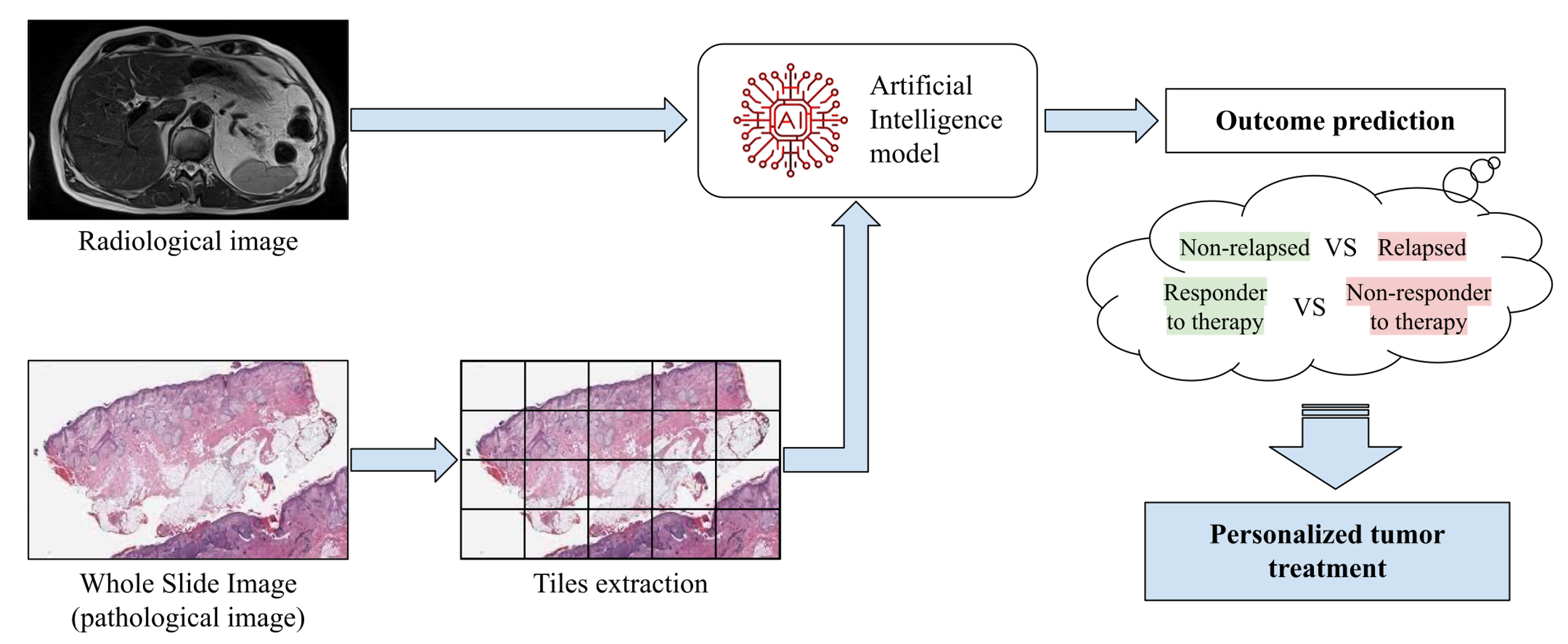
Topic:
In the last decade, multi‐omics has gained increasing importance in the biomedical field. Indeed, incorporating different biological layers of information such as radiological and pathological images and genetic and clinical data has become crucial to predict phenotypic conditions. Specifically, the term Radio-pathomics refers to the fusion of radiological and pathological information.
Colorectal cancer (CRC) is the 2nd most lethal cancer in Europe with half of 500,000 new cases per year eventually developing metastases. Despite great advances, the development of robust predictive biomarkers to assess treatment efficacy for CRC is still an open problem. In this regard, artificial intelligence has proven to be a useful tool for the automatic prediction and characterization of pathologies and tumors.
This project has several tasks: 1) to develop different Clinical Decision Support Systems (CDSS) able to predict the single patient response to a specific chemotherapy regimen, 2) to validate the developed CDSS for patients in both early and advanced colorectal cancer, 3) to define the clinical/molecular, macro and micro imaging pipelines, 3) to propose a methodology for the development of similar CDSS, based on both separate models (for clinical, molecular, macro and micro imaging data) and integrated models where all data collected by the project are combined to provide a complete tool for prognosis and therapy modeling.